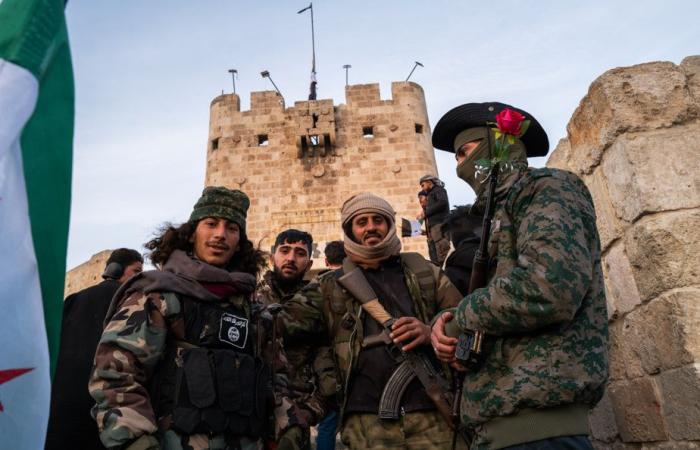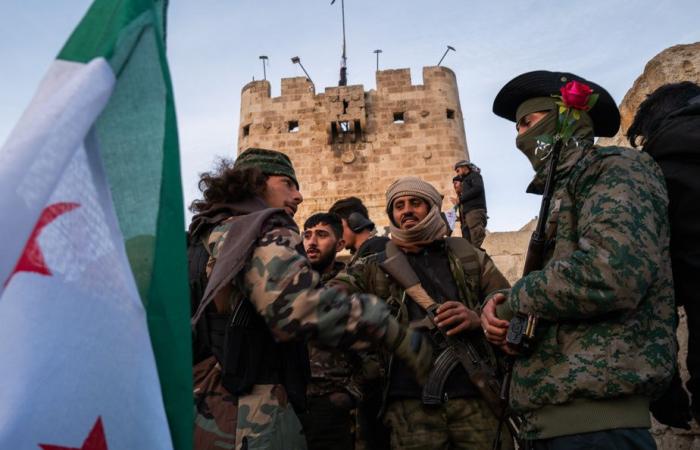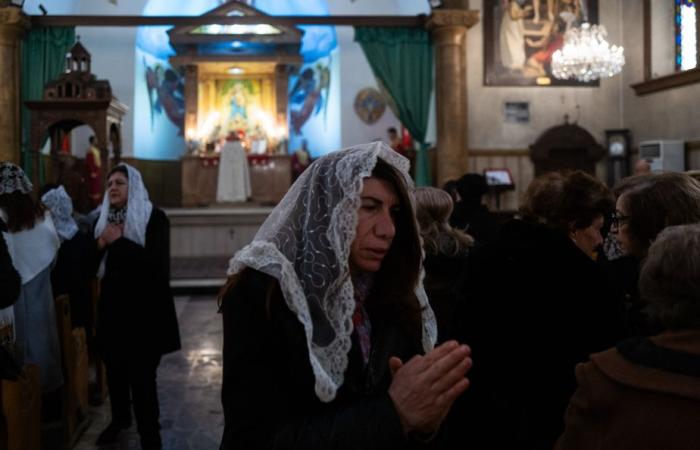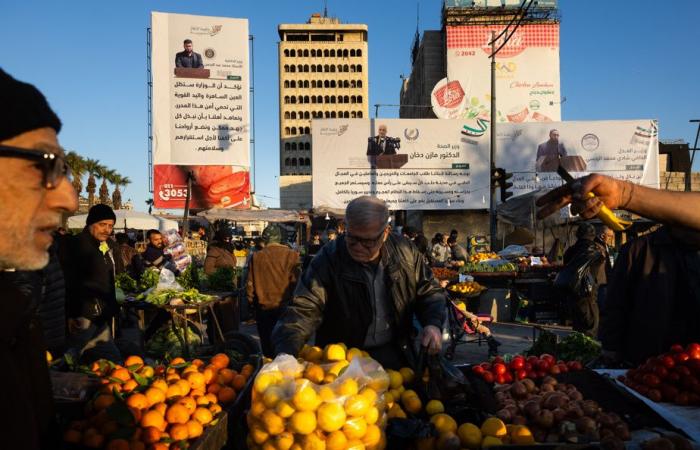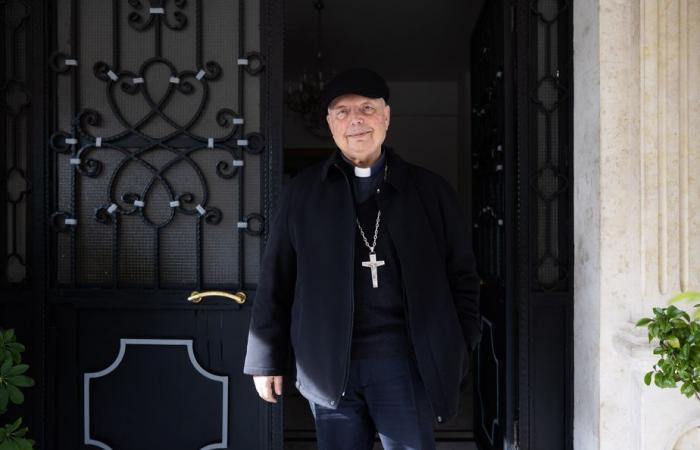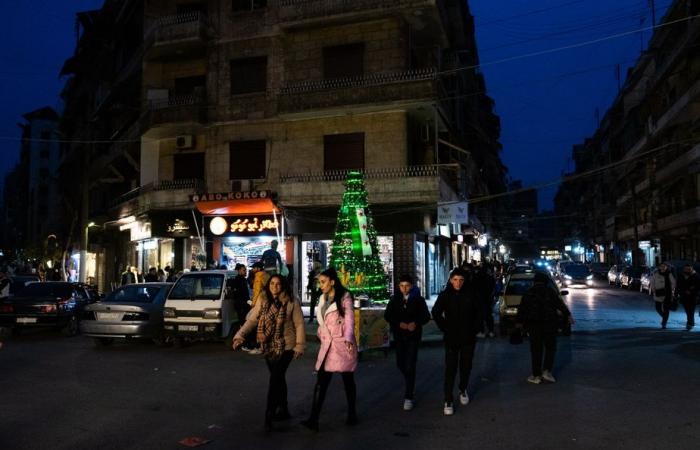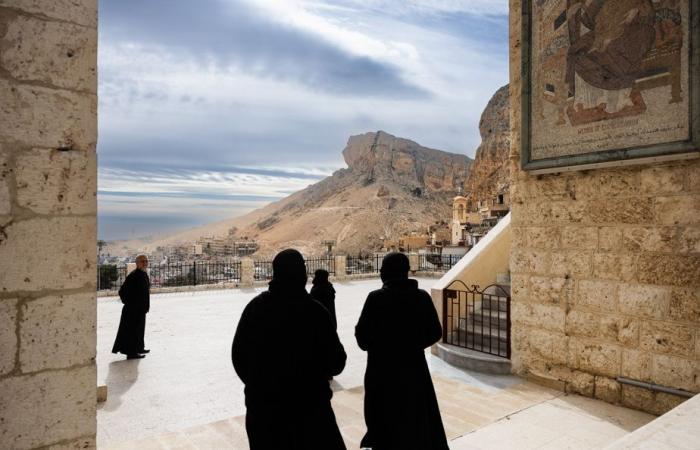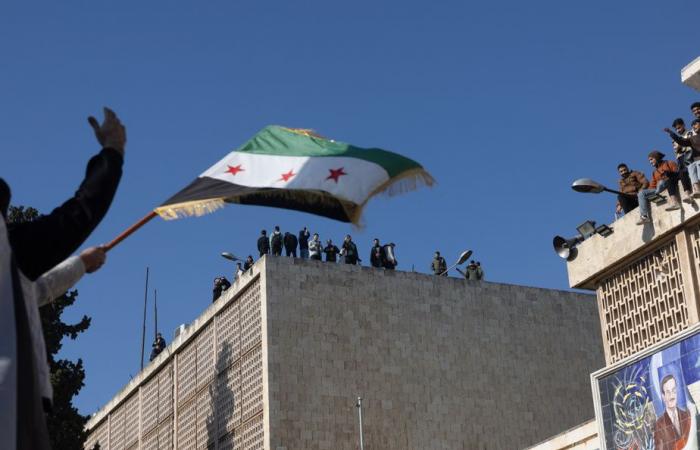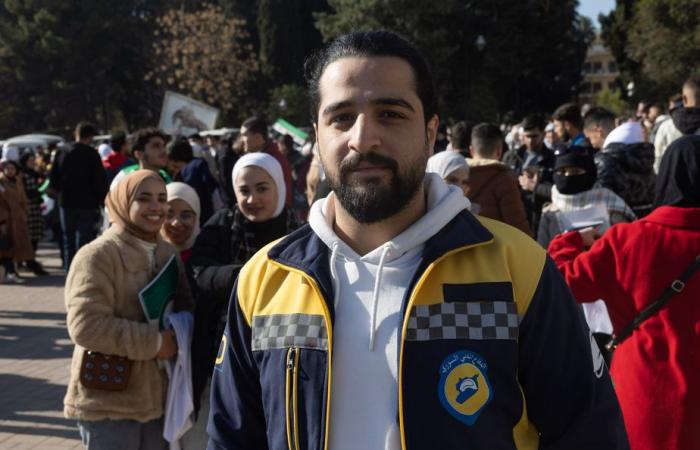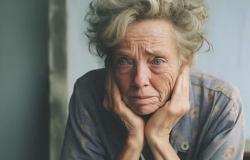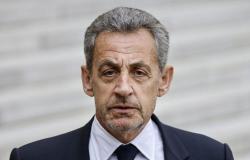(Aleppo) The rebel who guards the imposing medieval citadel of Aleppo has slipped a flower into the barrel of his machine gun. “To show that we are pacifists,” he explains. Around us, the crowd is in a festive mood. A clown entertains the children. The street vendors selling popcorn and cotton candy do good business. Three other rebels join the conversation. “Welcome, Canada!” », joyfully says the one who displays the flag of the Islamic State on his chest.
Published at 5:00 a.m.
I have a fleeting thought for James Foley, this American journalist beheaded by militants of the Islamic State armed group in 2014, when Syria was still a horrible cutthroat for Western reporters. I am willing to admit that these triumphant rebels belong to an organization that severed its ties with the Islamic State in Iraq, then with Al-Qaeda, several years ago. But at the sight of this black and white flag, a doubt assail me: can Syria really trust these bearded men armed to the teeth?
PHOTO MARTIN TREMBLAY, THE PRESS
Rebels guard the Aleppo citadel.
All Syrians have been asking this question since the Hayat Tahrir al-Sham (HTS) group overthrew the regime of Bashar al-Assad on December 8. No one has forgotten that HTS long had another name, the Al-Nusra Front, nor the fear that this powerful radical insurgent militia inspired during the dark years of the civil war.
The rebel coalition is rapidly gaining international legitimacy, with diplomats already beginning to meet with its leaders in Damascus. Still, many Syrians wonder whether a jihadist group with ultraviolent methods can change to this extent.
On this chilly Sunday morning, religious songs fill the Armenian Orthodox Church of the Holy Mother of God, in the heart of Sulaymaniyah. In this Christian district of Aleppo, life quickly returned to normal after the city was taken by Islamist rebels on November 30. All the merchants have reopened — all except the alcohol merchants. You can never be too careful.
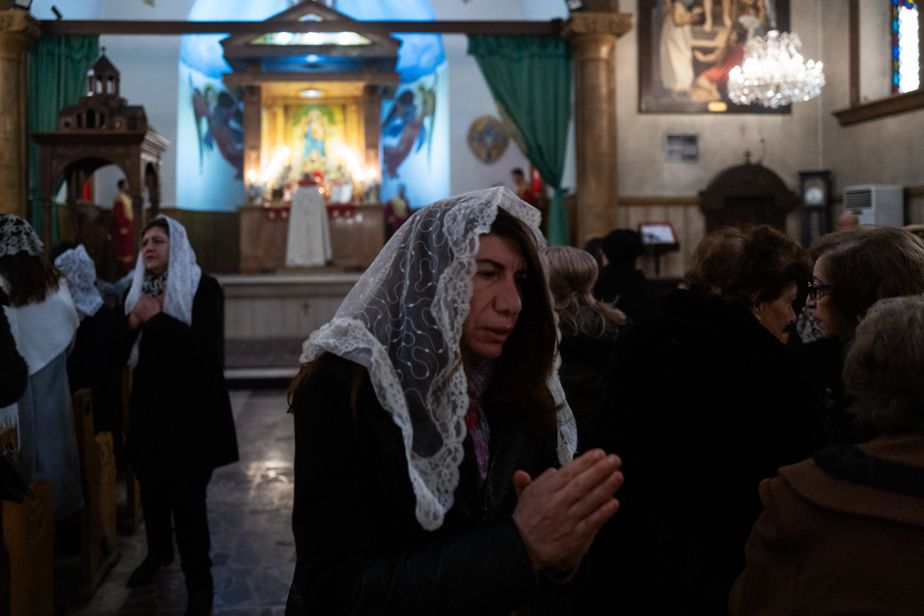
PHOTO MARTIN TREMBLAY, THE PRESS
The Armenian Orthodox Church of the Holy Mother of God, in the Christian quarter of Aleppo
The city of Aleppo – and Syria as a whole – is experiencing a period of uncertainty, as if History had stopped its march, uncertain of the direction to take. “As in all revolutions, we need time to know what will happen from now on,” said Kevork Kazayan, an auto parts salesman with the Armenian church.
The day after the capture of Aleppo, on November 30, the rebels knocked on the doors of the neighborhood to reassure the Christians: they had nothing to fear from them. As a testament to their good faith, the rebels distributed bread far and wide. The operation did not entirely convince Kevork Kazayan: “I am 47 years old. We are not going to win my heart and my head with bread…”
“So far we haven’t had any problems,” he admits. But what makes us doubt is that the group is still on the list of terrorist organizations in many countries. »
For years, these rebels have been trained to kill people. Can a mentality really change in two weeks?
Kevork Kazayan, auto parts salesman
The rebels are doing everything to convince the Syrian population of this.
In the center of Aleppo, giant posters relay messages from Syria’s new leaders. We will do everything to ensure the stability of the country, promises the Minister of Internal Affairs. No one will lose their job, swears the Minister of Health. We will make Aleppo a model of justice and integrity. The era of repression is over, says the Minister of Justice.
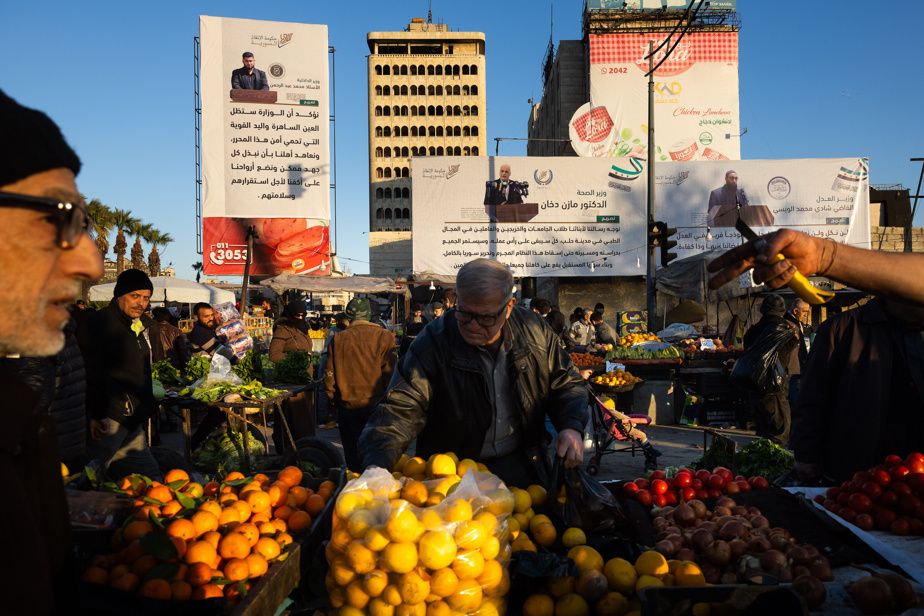
PHOTO MARTIN TREMBLAY, THE PRESS
Giant posters of the ministers of the new government try to reassure the inhabitants of Aleppo.
These leaders also promised not to dictate to women how they dress. It is forbidden to force them to show “modesty” in their appearance, they warned on their social networks.
And then, during the night from Sunday to Monday, subscribers to the Syrian telephone network all received the same text: “Our revolution is a new start to build a solid, free and just state. »
The public relations operation is well oiled. It remains to be seen whether it will be enough to persuade the Syrians.
In Aleppo, Catholic Bishop Hanna Jallouf chose to believe it. However, if there is one who we might have thought terrified by the coming to power of Islamist rebels, it is him.
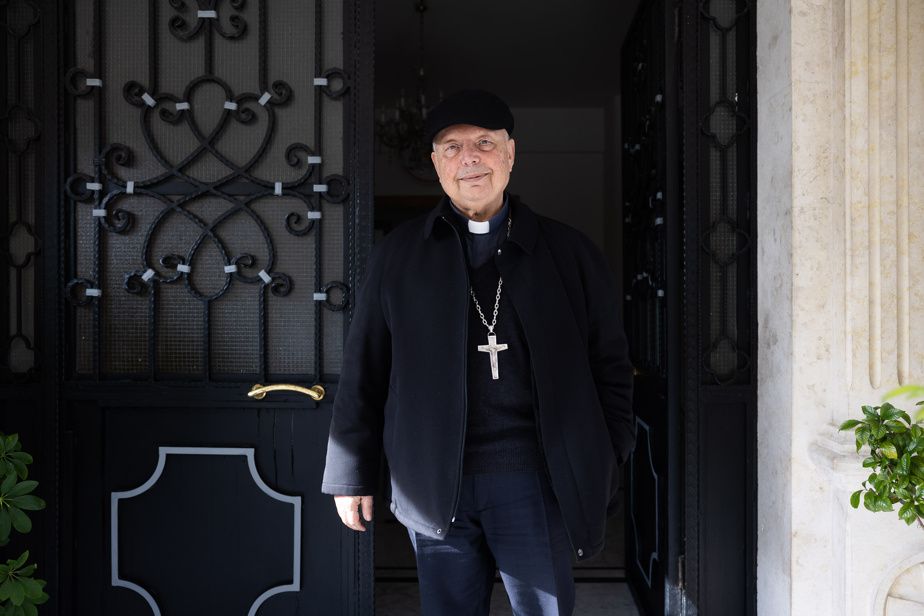
PHOTO MARTIN TREMBLAY, THE PRESS
Catholic Bishop Hanna Jallouf, in Aleppo
Before being ordained bishop in 2023, this Franciscan father officiated in the enclave of Idlib, the last jihadist stronghold in north-west Syria. It was from this enclave that the rebels launched their dazzling attack against Aleppo, Hama, Homs and, finally, Damascus, the capital.
In 2014, Father Jallouf dared to ask Al-Nusra Front activists to stop their persecution of Christians in the Idlib region. The activists threw him into the dungeon. Sixteen parishioners suffered the same fate; some were tortured. An ordeal lasting around ten days, until international pressure pushed the activists to release their prisoners.
Since this dark period, things have improved in the Idlib region, where Father Jallouf witnessed the conversion – authentic, according to him – of the Al-Nusra Front. The leader of the jihadist group, Abu Mohammed al-Joulani, purged the group of its most radical elements. He reached out to the few Christians who had not yet fled.
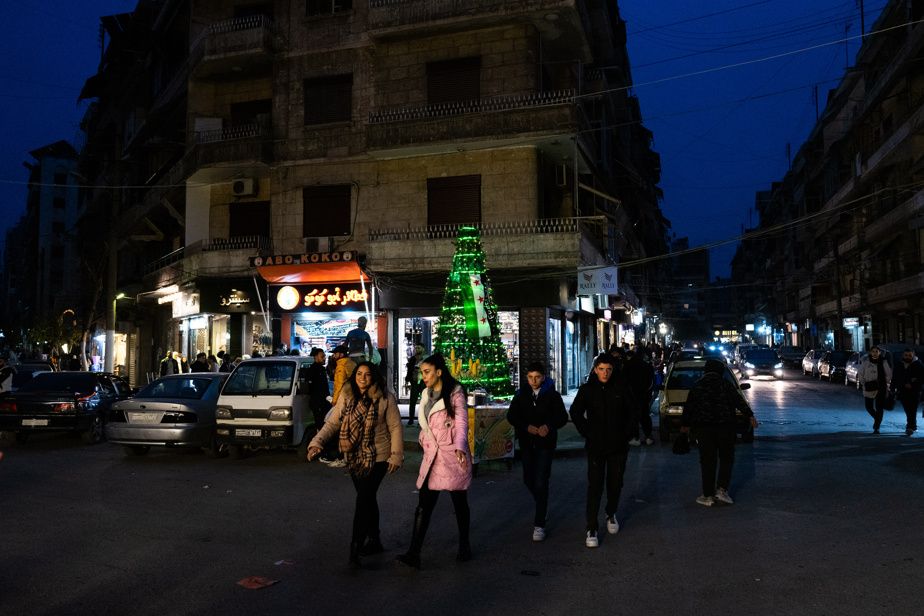
PHOTO MARTIN TREMBLAY, THE PRESS
Souleimaniyah, the Christian quarter of Aleppo, is preparing for Christmas.
“Abu Mohammed al-Joulani understood that if he wanted to build a state, he had to include, not exclude, all of Syria’s communities,” explains M.gr Jallouf. Since 2018, this has allowed us to build good relationships with him. When the rebels entered Aleppo, my parishioners were terrified. I reassured them: HTS is not the Islamic State. He’s not coming here to kill us. »
Shortly after the collapse of regime forces in Aleppo, the bishop was able to speak on the phone with Abu Mohammed al-Joulani, who wanted to reassure him once again of his intentions. Mgr Jallouf thanked his interlocutor for freeing the country from a stifling and corrupt dictatorship.
Abu Mohammed al-Joulani is a rational man who always keeps his word. Under his leadership, Syria will be freer.
Catholic Bishop Hanna Jallouf
Christians make up 5% of the Syrian population – there were twice as many before the war. They often tend to live in seclusion, as in Maaloula, a mountain village north of Damascus where the inhabitants still speak Aramaic, the language of Jesus.
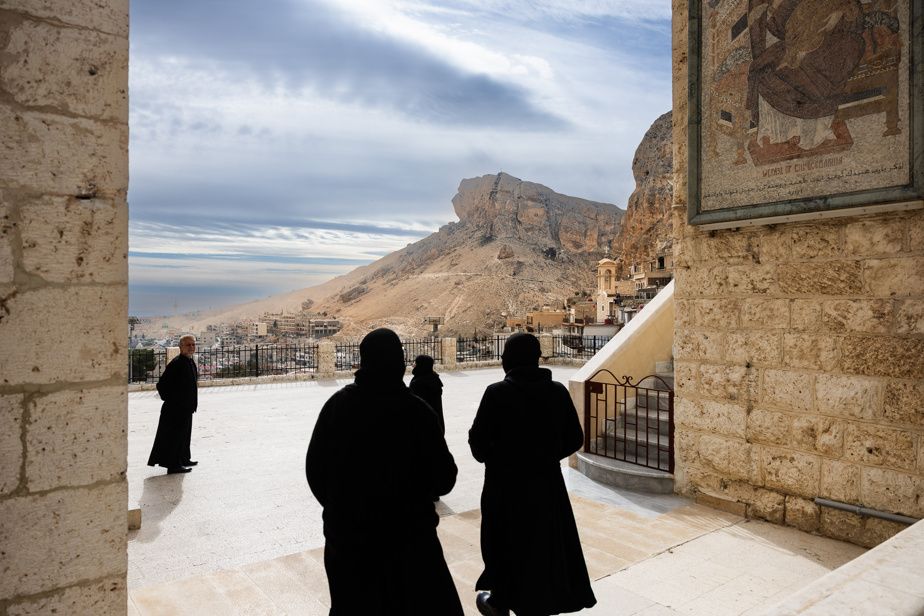
PHOTO MARTIN TREMBLAY, THE PRESS
The monastery of Sainte-Thècle, in Maaloula
Nestled between the golden cliffs, the village tries to be forgotten. He does not interfere with the rest of Syria and its problems. But in December 2013, the rest of Syria finally found him. Al-Nusra Front militants attacked Maaloula and kidnapped 13 nuns from the Sainte-Thècle monastery. “They held us prisoner for three months,” says one of them, Eghnatia Boulos.
The nun hesitates to comment on the new masters of Damascus. She prefers to talk to me about Saint Thecla, a disciple of Saint Paul who took refuge here when her parents wanted to marry her by force, in the Iis century. “God helped her in her escape by opening the mountains for her. » A miracle.
Father Mathieu, responsible for the monastery, has little desire to dwell on his fears and hopes for the future of Syria. He just smiles and raises his hands to the sky. “We will wait. »
Wait, and pray for a new miracle.
In the courtyard of the University of Aleppo, jubilant students watch the raising of the flag of the new Syria. It is the White Helmets, these volunteer citizens who risked everything to rescue the victims of the bombings in the rubble of the besieged city, who raise the flag.
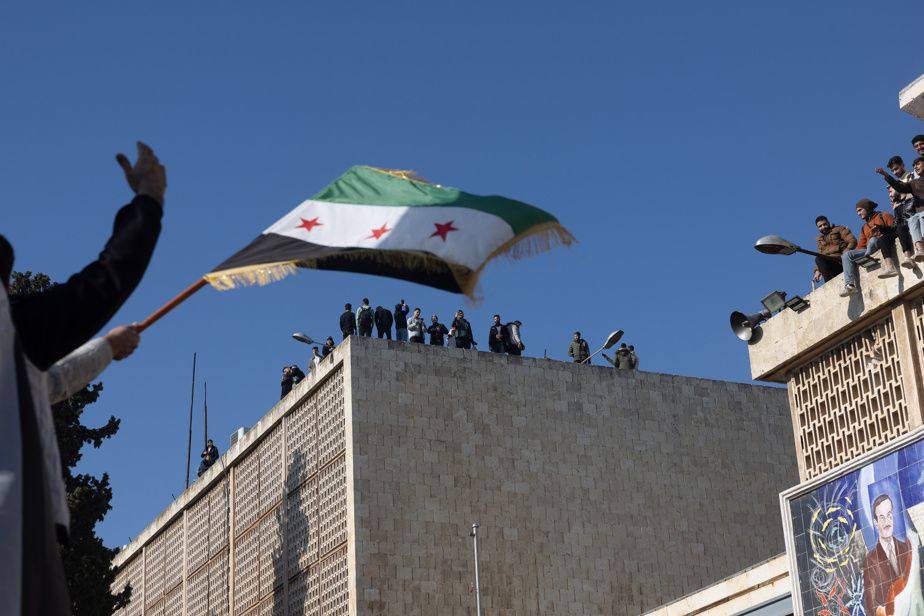
PHOTO MARTIN TREMBLAY, THE PRESS
At Aleppo University, students attend the raising of the flag of the new Syria.
Among them, Khaled Khatib, who sees his city for the first time after an eight-year exile. His joy is immense, communicative. “It’s a great day for the city of Aleppo,” he rejoices. I don’t believe it yet. It’s really crazy! »
Khaled Khatib joined the White Helmets at age 17 in 2013. He documented most of the rescue missions in the film The White Helmets, which received the Oscar for best short documentary in 2017. Armed with his camera, he was able to relay to the rest of the world the horror of war by filming striking images, such as those of a baby pulled from the rubble, covered in dust, but alive.
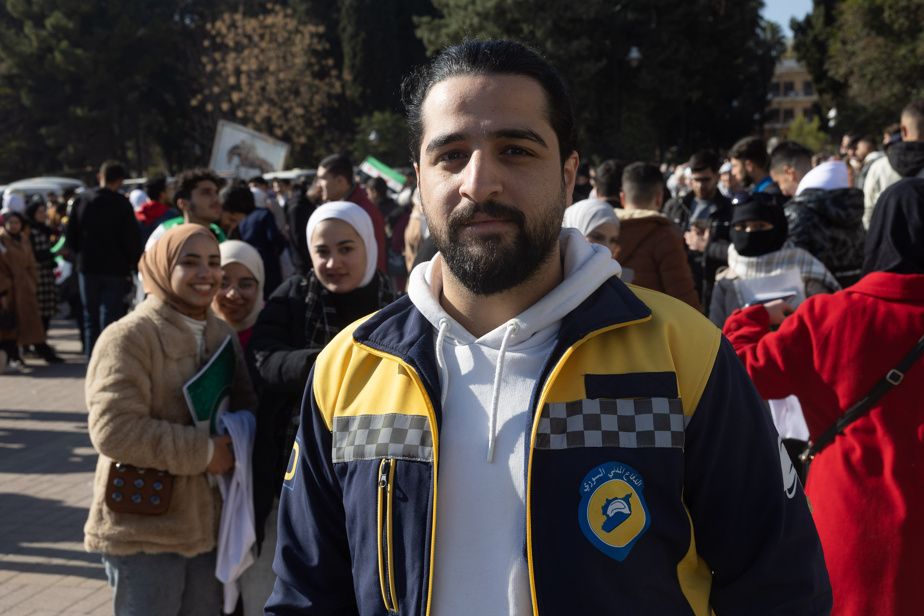
PHOTO MARTIN TREMBLAY, THE PRESS
Khaled Khatib, White Helmet of Aleppo
After the siege of Aleppo, the regime tightened its grip on the battered city, and Khaled Khatib lost all hope. “The international community had forgotten us. With the wars in Ukraine and Gaza, the media looked elsewhere; Syria no longer had a voice. Bashar al-Assad was about to be rehabilitated. And then, all of a sudden, it happened. Liberation, finally! »
Khaled Khatib does not fear the establishment of a dictatorship worse than the one that has just collapsed. The White Helmet has seen too many deaths, neighborhoods razed and families decimated. “Nothing can ever be worse than the regime of Bashar al-Assad. »

